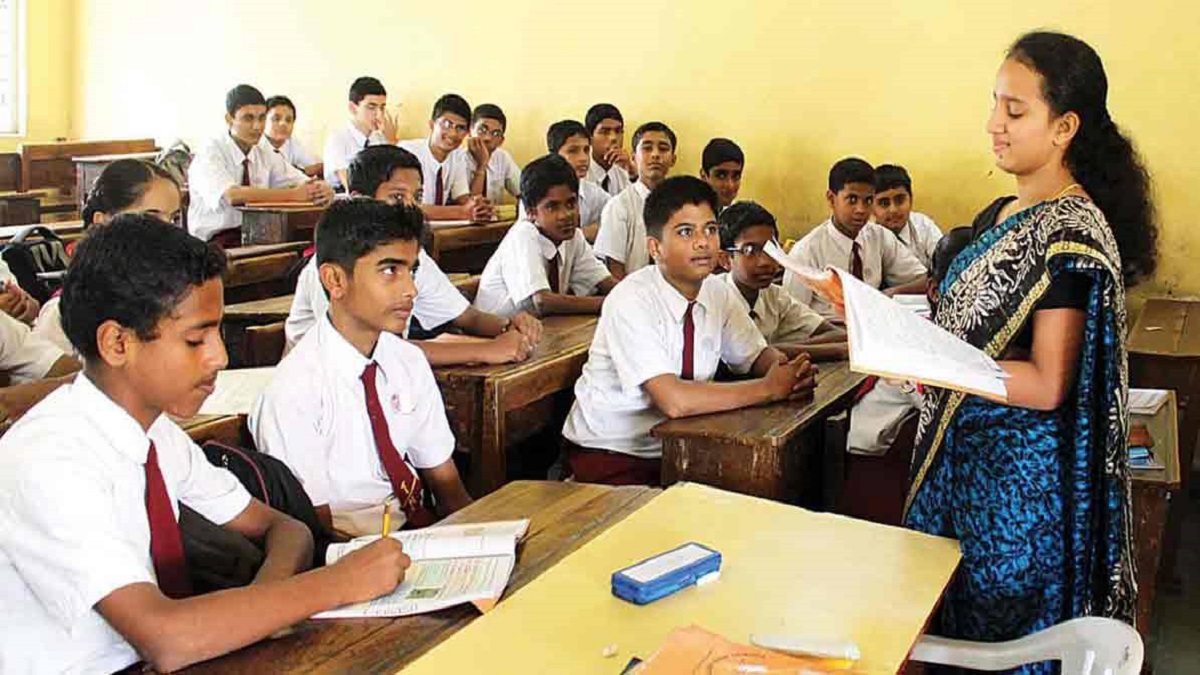NCERT has stated that the topic was removed when it rationalised the syllabus by 30% to “reduce the content load on students” in view of the Covid-19 pandemic in 2022.
NCERT has come up with a detailed clarification regarding the controversy related to the removal of the periodic table, democracy, and sources of energy from the class 10 syllabus. NCERT has stated that the changes have been done keeping more age appropriate and considering the Covid pandemic situation.
As per the NCERT, during the Pandemic – COVID- 19 situation, students across the stages of school education have struggled a lot to continue their learning online and in other modes.
It stated that concerns related to curriculum load including the content load spread over syllabi and textbooks have been raised from different corners. Even the Parliamentary Standing Committee has also raised concerns about the content overload in the textbooks.
A controversy related to the NCERT syllabus erupted after the scientific journal Nature came up with a report that the periodic table which is part of critical learning has been removed.
However, NCERT has stated that the topic was removed when it rationalised the syllabus by 30% to “reduce the content load on students” in view of the Covid-19 pandemic in 2022.
Democracy challenges to democracy
NCERT has stated that among the topics dropped from the science textbook are also chapters on environmental sustainability and sources of energy. Full chapters on democracy, challenges to democracy and political parties have also been dropped for Class 10 students after the latest revision.
In view of facilitating speedy recovery in their learning continuum and compensating time loss, NCERT took a step towards the rationalization of textbooks across the stages and subject areas. Keeping in view, the benefits of all the children, NCERT faculty members in consultation with practising teachers from CBSE and experts have analysed textbooks across subjects and classes for rationalising the content.
Specific criteria were also developed for the rationalisation of content load, which are given below:
Overlapping with similar content is included in other subject areas in the same class. Similar content is included in the lower or higher classes in the same subject.
High difficulty level
Content, is easily accessible to children and does not require much intervention from the teachers and can be learned through self-learning or peer learning.
Content, which is not relevant in the present context or outdated.
Learning outcomes already developed across the classes are taken care of in this rationalization exercise. As far as dropping the three "chapters- ‘Democracy and Diversity’, ‘Challenges to Democracy’ and ‘Popular Struggles and Movements’ – are concerned, “It is to clarify that dropping portions relating to social movements from class X, Political Science textbook, Democratic Politics II and class XII Politics in India Since Independence, the expert committee in the process of rationalisation was of the view that,” states NCERT mentioning that these are more appropriate to be part of Sociology subject.
Regarding chapter one of Class X, Democratic Politics- II already deals with some aspects of Social Movements NCERT has stated that overlapping with similar content is included in the other subject area in the same class. Similar content included in the lower or higher class in the same subject, High difficulty level, Content, which is easily accessible to children and does not require much intervention from the teachers and can be learnt through self-learning or peer-learning.
It has stated that content, which is not relevant in the present context or is outdated and learning outcomes already developed across the classes are taken care of in this rationalization exercise.
Removal of the periodic table
As per the NCERT, with respect to the removal of the concepts of the periodic table and evolution are concerned, the same has not been removed from the school education curriculum but in fact, are available in appropriate detail in classes 11 and 12.
Regarding rationalization of the concept of evolution:
As far as the rationalisation of the content of evolution is concerned, the same has been dealt with in appropriate detail in class 12 as stated above. A considered opinion emerged based on the feedback received from various stakeholders, including practising teachers, that children may not have to study the same concepts at different stages and it needs to be done at the appropriate stage.
Therefore the same has been rationalized at this stage, more so considering the Covid pandemic situation.
Regarding rationalization of the periodic table:
Discussion about basic concepts such as elements, symbols, and formation of compounds, atoms and molecules have been dealt with in class 9. In class 10, chemical reactions; acids, bases & salts; metals & non-metals; carbon & its compounds have been covered. Students pursuing science in classes 11 and 12 will study the details of the Periodic Classification of elements (Periodic table).
The content placed in the periodic table again has been made more age-appropriate, more so considering the Covid pandemic situation.
Read More:
Follow Shiksha.com for latest education news in detail on Exam Results, Dates, Admit Cards, & Schedules, Colleges & Universities news related to Admissions & Courses, Board exams, Scholarships, Careers, Education Events, New education policies & Regulations.
To get in touch with Shiksha news team, please write to us at news@shiksha.com


Abhay Anand is an experienced education journalist with over 15 years in print and digital media. Currently serving as Manager- Editorial at Shiksha.com, he specializes in higher education policy, student mobility,
Read Full Bio